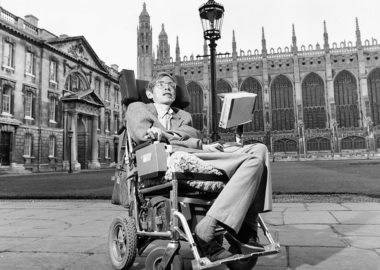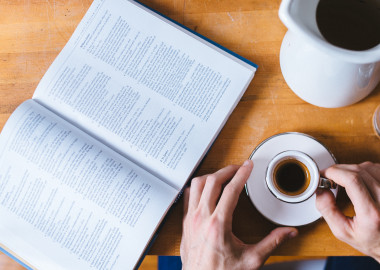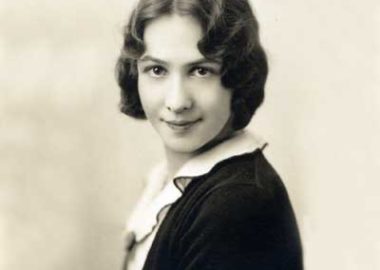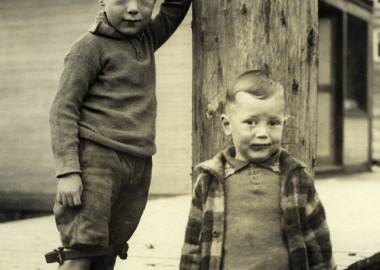We asked accomplished people from all walks of life to talk about the benefits of values-driven, authentic lives, and the meaning of legacy

For 40 years, veteran CBC broadcaster Rick Cluff has documented the daily lives of Canadians in real time — first as a sports journalist in Ontario, and for the past 19 years as the host of the morning current-affairs show The Early Edition on CBC Radio One. Nearing retirement, Cluff talks about the legacy he carries from his parents, and the greatest gift that a lifetime of interviews has given him back. Read to learn more about the voice of British Columbia, there every morning, “dark and early,” to tell the stories of those all around us.
ECHO STORYTELLING AGENCY: We’re talking a bit about legacy. What are some of the things that were bequeathed to you?
RICK CLUFF: I got my mother’s empathy, my father’s sense of humour.
ECHO: Nice.
RICK CLUFF: My dad was really quick on the uptake and could be very funny. My mother was just a wonderful woman who was very empathic about other people and other things and I like to think I got the best of both.
ECHO: Were you aware of that inheritance at the time?
RICK CLUFF: Yeah, my sister and I — it was just the two of us — were both really quick on the uptake, really funny. We make each other laugh, and that comes from Dad because when we’d sit around the family dinner table, Dad would put us on all the time and it took a long time before we realized we were being put on. Then we’d turn the tables and it would become a competition of one-liners and trying to up the other guy. My mother would just sit there and say, “Oh, Rick. Oh, Patty. Oh, Harold.” And we would just be rhyming them off and making each other laugh.
ECHO: Are your parents still with us?
RICK CLUFF: No, they’re both long gone. Mum lived to 94 and she died on Christmas day eight years ago. My dad I lost in 1972. The funny thing about Dad was he was in radio too. During the war he was on the air force show, then he had his own show in Toronto. He was a singer and a performer and a record producer. I remember when I was going to college, I started on student radio, and he said, “If I can give you any advice, it’s this: don’t go into radio. And for God’s sake, never work for the CBC.” I said, “Why not?” He said, “Because the CBC is full of left-wing communists. And radio is a dead-end career.”
ECHO: Are you glad you didn’t listen to him?
RICK CLUFF: Oh yeah. Dad, I’m really sorry.
My dad said, ‘If I can give you any advice, it’s this: don’t go into radio. And for God’s sake, never work for the CBC.’
ECHO: How did you wind up in journalism?
RICK CLUFF: Believe me, there was no way I envisioned myself going to college and university. I got kicked out of high school in Grade 10. I like to tell people I played three things: cello, football and hooky. And I played hooky perhaps better than the other two. Finally, I was asked by the principal to leave the property after four years of having a ball but accomplishing zero.
I went to college as a mature student, and my dad saw me do that. In September I was valedictorian for my class but unfortunately he died in July so he didn’t see when I finally turned it around. From college I went to university to graduate school, and worked in radio along the way. Campus radio and a couple of professional jobs.
ECHO: You got the gig with the CBC right out of grad school, and wound up spending 20 years on the sports desk in Ontario before you moved west to cover current events. What do you think your contribution is, just on the sports side?
CLUFF: At that time, there were sportscasters and sports commentators, but I thought our approach to covering sports was totally different. We covered it as journalists.
ECHO: Not as fans.
RICK CLUFF: As journalists. During that time, I covered a number of remarkable stories. I was there in Seoul when we all got a knock on the door and heard the words “Ben’s dirty” after Ben Johnson had just sent Canada abuzz by winning the men’s 100 metres. Had the opportunity to sit down one-on-one with Mohammed Ali on a couch in Rockport, New York. I got to play golf with Jack Nicklaus and walk a hole of the British Open with him, Arnold Palmer and Gary Player. Remarkable experiences.
ECHO: And now almost 20 years interviewing just about every newsmaker on The Early Edition. What do you take from that?
RICK CLUFF: Susan Englebert, who was a gifted programmer at the CBC, God rest her, offered me the job on a Wednesday. I said no. She offered it again on a Friday. I said I’d go home and talk to my wife at the time, who said as long as it’s only a three-year post, which it was supposed to be. After three years, the CBC said, “Okay, come on back, do a network show in Toronto.” But the kids had put down their roots here, so they sort of said, “Have a nice trip, Dad. Don’t forget to send the cheques.” A three-year post has become 19 years.
ECHO: Do you regret the move?
RICK CLUFF: Absolutely not. I’ve got the best job in the world. I sit in the studio and the world comes to me. I love what I do.

ECHO: What makes for good conversation?
RICK CLUFF: Sincerity. And even though they come into my space or we’re on the phone, I give them licence to say what they want. I’m not judgmental. I try to be very fair, and I let the audience make their own decision. Sometimes if it’s on the phone, I’ll kill my mic and I’ll be yelling and screaming and then open the mic back up and just say, “Yes, minister. And then?” When the mail comes in the next day or the email comes in later that morning, the audience gets it. So I don’t impose myself on any guest. I laugh with them. I’ve cried with them. I debate them. But I don’t argue with them.
ECHO: Being a believer in that even-tempered, welcoming approach, what do you think your contribution to the culture of British Columbia has been?
RICK CLUFF: When it’s time for me to retire, I just want people to say I was fair, I had no axes to grind. Believe me, there are stories I do where you can hear in the tone of my voice that I think the person across from me is a blithering idiot. But I would never say that because I don’t think anybody, including politicians, sets out to be bad.
I give them licence to say what they want. I’m not judgmental. I try to be very fair, and I let the audience make their own decision.
ECHO: And the impact on you?
CLUFF: I think I’m more appreciative of people. Period. Because as I said, nobody sets out to do a bad job. I think I’m more temperate now in my attitudes towards life in general. I fully appreciate there are two sides, sometimes more, to every story. I think I will have that mindset for whatever I do in the rest of my life. Everybody’s got a story. Everybody’s got a story.
Listen to The Early Edition online, or check the website for the next public event by the show’s cast and crew.
We’re doing this #GoodAncestors project to celebrate the wisdom of those who’ve gone before. The power of story only grows over time. Hard-won lessons, shared through the ages, keep next generations on the straight and narrow, and lead our children and grandchildren to grow into their best selves. A lesson we’ve learned over hundreds of memoir projects: values, shared from one generation to the next, resonate with ever greater meaning and effect.
We hope this #GoodAncestors series will inspire you as well, and light the fire for your best life.
For more Q&As in this series, visit the #GoodAncestors page.





